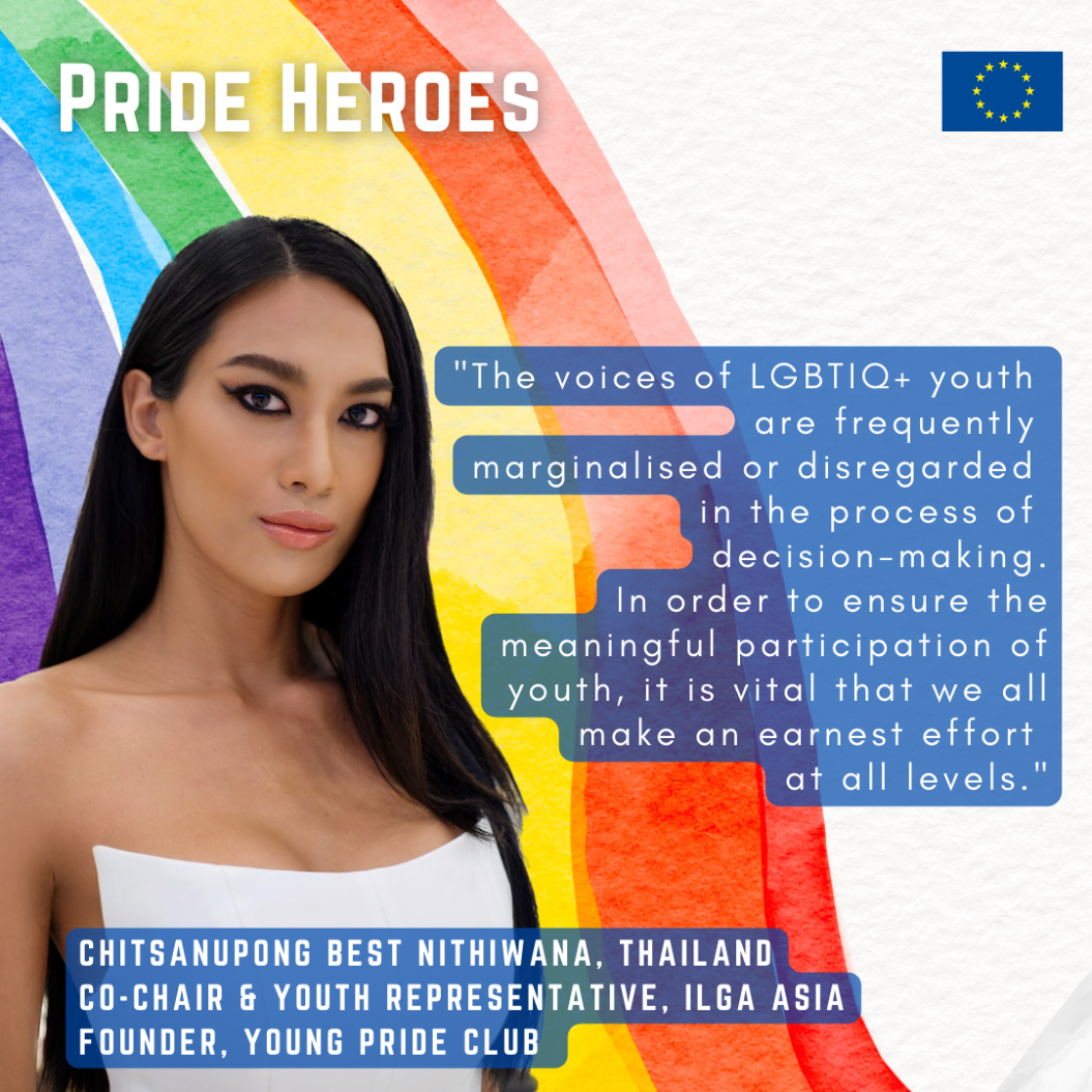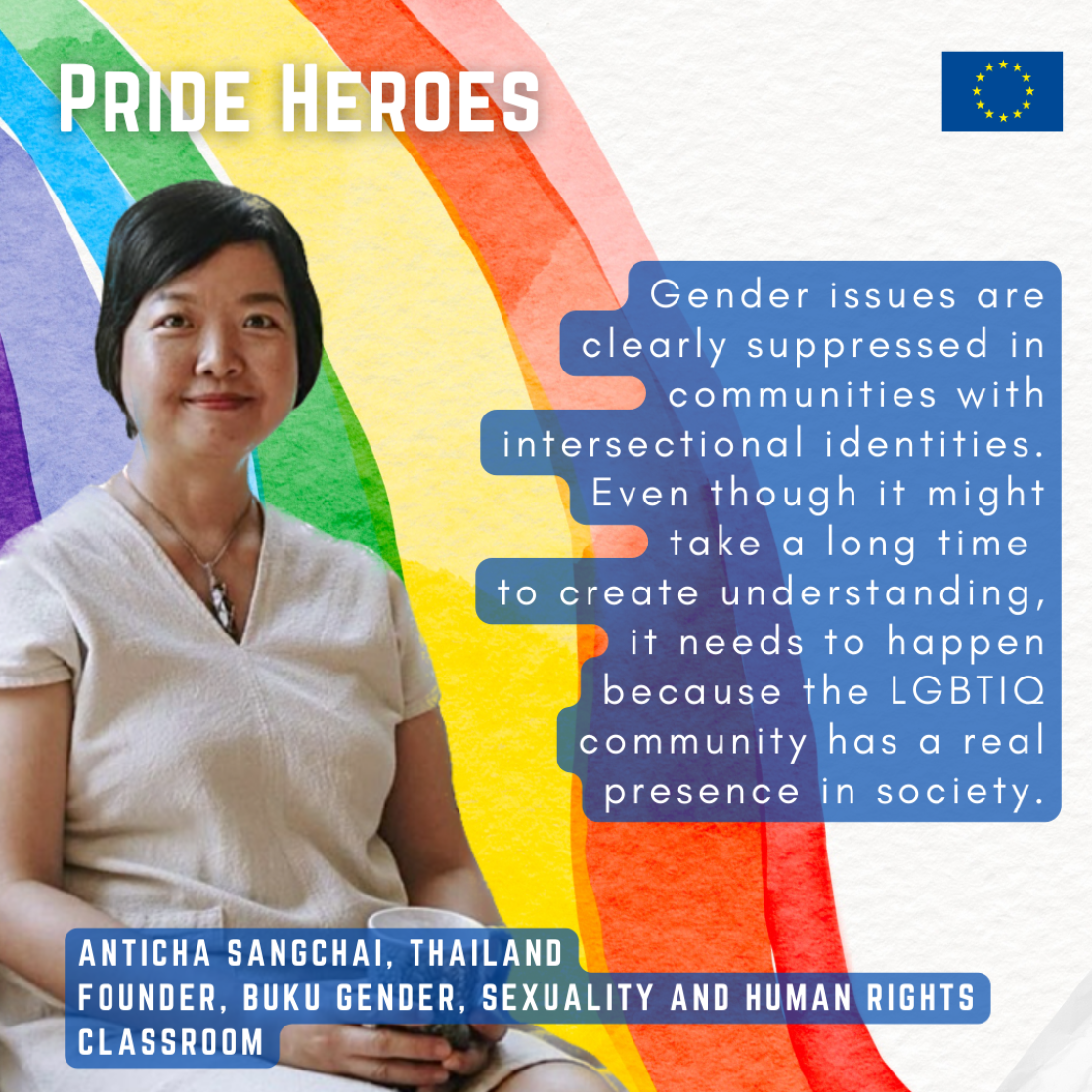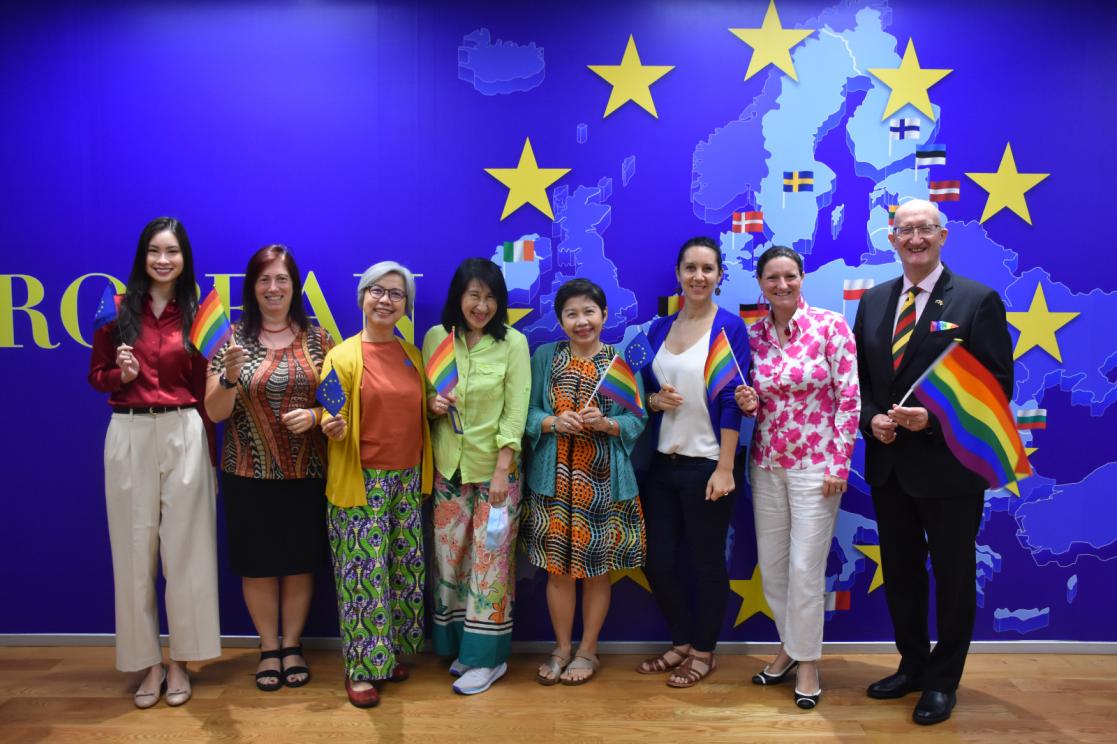EU Delegation to Thailand: Proud to Celebrate Pride Month

Embracing diversity, promoting equality, and standing for love and acceptance. Together, we strive for a more inclusive world.

EUDEL Thailand
On 4 June 2023, EU Delegation to Thailand marched in the Bangkok Pride Parade in celebration of Pride Month and LGBTIQ’s equal rights.
Gender equality and non-discrimination are one of the EU’s core values. In addition to the EU’s mission in protecting and promoting LGBTIQ’s human rights, EU Delegation to Thailand joined the EEAS and EU Delegations around the world in launching ‘Pride Heroes’ initiative by sharing testimonials of local heroes who promote the human rights of LGBTIQ+ persons in Thailand.
We feature Chitsanupong Nithiwana (Best), Executive Board Co-Chair and youth representative of ILGA Asia. She is also a founder of Young Pride Club, a safe learning community for young people interested in gender equality and the LGBTQ+ community based in Chiang Mai province.

EU
Chitsanupong shares her thought on why it is fundamental to defend human rights of LGBTIQ+ persons, saying, “The youth population plays a pivotal role in addressing a number of the most pressing global issues, especially in Thailand. Unfortunately, the voices of LGBTIQ+ youth are frequently marginalised or disregarded in the process of decision-making.” Chitsanupong also highlights the significance of making an earnest support at all levels to ensure meaningful participation of youth. She believes that the responsibility to protect human rights of LGBTIQ+ persons cannot be delayed to future generation, but needs to be collectively addressed now.

EUDEL
In addition, we feature Anticha Sangchai, founder of Buku Classroom, a grassroots organisation based in Pattani Province working to raise social awareness on gender, sexuality and human rights for gender equality and justice. She is also a founder of Buku Football Club, which provides an opportunity for everyone to play football in the Muslim majority southern border province of Thailand.
Anticha shared her thoughts on the role of civil society in the promotion of LGBTIQ rights saying that civil society is the group of people who rise up to advance issues that impact affected individuals. Therefore, civil society serves as a voice that echoes the community's needs to a wider audience and connects resources to the community. She also mentioned that in communities with intersectional identities, such as ethnic or religious groups, gender issues are clearly suppressed. Therefore, it might take a long time, even up to 10 years, to create understanding. "It's tough, but it needs to happen because the LGBTIQ community has a real presence in society."
Did you know?
The EU is one of the first organisations to have explicitly recognised sexual orientation and gender identity as grounds of discrimination in law. The Amsterdam Treaty signed in 1997 empowered the EU to adopt measures to deal with discrimination based on other grounds, including sexual orientation.
The European Commission adopted the LGBTIQ Equality Strategy 2020-2025 which is the first-ever Commission strategy on LGBTIQ equality and delivers on the European Commission’s commitment to building a Union of Equality.
The EU is also a major donor worldwide to projects aimed at combatting discrimination against LGBTIQ people, mainly through the European Instrument for Democracy and Human Rights (EIDHR).

EUDEL Thailand





